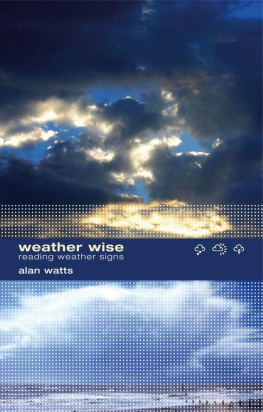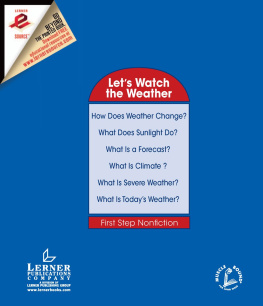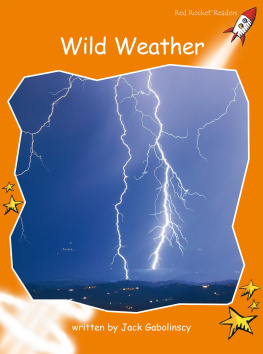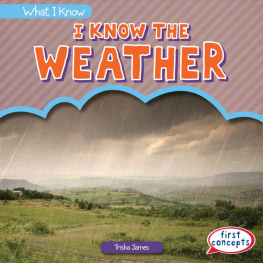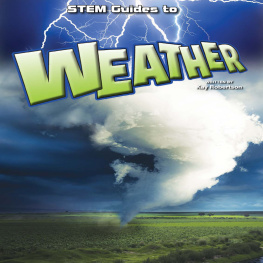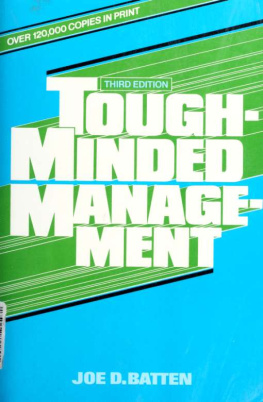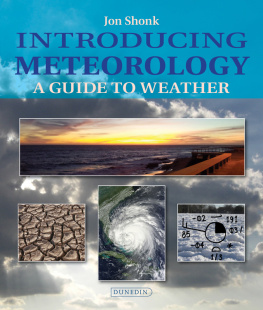University of Virginia Press
2011 by the Rector and Visitors
of the University of Virginia
All rights reserved
Printed in the United States of America
on acid-free paper
First published 2011
9 8 7 6 5 4 3 2 1
Library of Congress Cataloging-in-Publication Data
Sage, Connie, 1948
Frank Batten : the untold story of the founder of the
Weather Channel / Connie Sage.
p. cm.
Includes bibliographical references and index.
ISBN 978-0-8139-3155-5 (cloth : alk. paper)
ISBN 978-0-8139-3160-9 (e-book)
1. Batten, Frank, 19272009. 2. Mass mediaUnited StatesBiography. 3. BusinessmenUnited StatesBiography. 4. Weather Channel (Television station : Atlanta, Ga.)History.
I. Title.
P92.5.B38S35 2011
384.555092dc22
ACKNOWLEDGMENTS
FRANK BATTENS biography would not have been possible to write without the help of Norfolk Historical Society and Landmark executives Dick Barry, Walter Rugaber, Louis Ryan, and Dubby Wynne, for whose support and feedback I owe so much gratitude. I cant sing enough praises for Dick Barrys insights and skillful word editing.
I am indebted to my primary editor, Earl Swift, for his wisdom and expertise. Earl took the (many) early drafts and made them sing, as the late Virginian-Pilot editor Ronald L. Speer would say.
U.Va.s Kenny Marotta did a yeomans job of taking the final patchwork quilt and putting it into fine shape. Thanks also to University of Virginia Press director Penny Kaiserlian, managing editor Ellen Satrom, assistant to the director Angie Hogan, and copy editor Gillian Hillis for their guidance.
I am grateful to the Batten family and to the many people throughout Landmarks businesses, TeleCable, the AP, and the Weather Channel who graciously spent hours sharing their stories. Culver Academies have earned a particularly warm place in my heart. I heap accolades on Tina Wright, Kim Kent, and Lyn Dorto Reid; their help was invaluable. And thanks also to Susan Goetz, Valary Lejman, Debbie Meads, Debbie Howell, and Carolyn Banks.
In a process that took more than a half dozen years to complete, special friends Judith Baroody, Betsy and Warren Bixler, Janice and Jack Hornbeck, Diane South, and Diane Hockenberry kept me going. Also lending their support were Rosemary Armao, Vi and George Daigler, Beth Hillson, Mary Kelly, Jean Lamkin, Beth Larmour, Lem Lewis, Dave Mayfield, Ellen Schreiber, John Schreiber, Bill Shultz, Maria Zammit, and Wendy Zomparelli.
Few have offered more wisdomor listened to me whine morethan my sisters in our Norfolk Reading between the Wines book club; youre all my heroes.
A special thank you to my many wonderful friends and neighbors in Black Rock, who have been my personal rock. Also, the Journalism & Womens Symposium, the women at St. Pauls, the Inglis Fletcher Book Club, and the Girls Breakfast Club.
The month I spent at the Ragdale Foundation artists colony in Lake Forest, Illinois, enabled me to tackle the toughest part of the book: the chapter on massive resistance. I owe a great deal of gratitude to the entire staff.
The many friends who have written booksand made it look easywere my inspiration, especially Earl Swift, Joe Jackson, Bob Hartman, John Rothchild, Peggy Earle, Ned Cline, Peggy Yates, Sharon and Greg Raver-Lampman, Connie Jones, Mike DOrso, and Kay Mills.
Many of the anecdotes landed on the cutting room floor, but I could not have written this book without the help of the more than one hundred people who shared their insights. Thanks to all of you.
I interviewed Frank Batten in his home for more than 150 hours. As his health declined, it became increasingly difficult for him to talk. He did not live to see the publication of this book, but hed be pleased, Im sure, to know that his ethics, integrity, and values made a difference in the untold number of lives that he touched and continue to do so.
Finally, my love and thanks go to Philip Conner, my biggest cheerleader, who has infinite humor and patience. Hes the captain of my ship, with whom Im writing our own Epilogue.
FRANK BATTEN
Introduction
ON A HOT Saturday morning in July 1983, a half-dozen attorneys in Atlanta began a series of negotiations that would last through the night. The air-conditioning in the Trust Company of Georgia building had automatically shifted to energy-saving mode and powered down for the weekend. Tensions rose with the temperature. After pumping tens of millions of dollars into his struggling cable television network, Frank Batten was pulling the plug on the Weather Channel.
Batten knew he had been taking a big risk when he started the Weather Channel a year earlier. The brainchild of John Coleman, a weather personality on ABCs Good Morning America, the concept of a national weather network devoted to up-to-the-minute forecasts twenty-four hours a day, seven days a week, had gone without backers before Batten learned of it.
Growing up by the ocean, Batten believed that a weather network could save lives and protect homes and businesses. He knew the kind of terror a hurricane could wreak. When he was six years old, he was carried to safety through chest-deep water as a hurricane ripped through the mid-Atlantic, blasting sheets of seawater and sand through his familys Virginia Beach cottage and washing away two-story-high dunes. The August 1933 storm, one of the worst on record, reshaped the Maryland coastline, cutting the Ocean City inlet, which still exists today.
Battens friends in the media were skeptical of a weather channel. Well, Frank, said Dan Burke, president of Capital Cities/ABC, youve got a lot of guts. A nothing-but-weather network seemed like such an absurd idea that even Battens senior managers ribbed him, crafting a Time Channel video spoof featuring close-ups of a large clock, its hands laboriously ticking away the seconds.
Just two years after losing his vocal cords to cancer, Batten was determined to prove his critics wrong. But as his company, Landmark Communications, Inc., poured more than $32 million into the Weather Channel, losses mounted. Advertising revenue was small; advertisers sank their cash into traditional broadcast TV, not cable programming. In the early 1980s, fewer than a quarter of American households with televisions subscribed to cable.
The leadership style of John Coleman, who had been appointed chairman, president, and chief executive officer of the network, didnt help. His bosses found him difficult and unpredictable; his employees found his behavior explosive and erratic. According to his contract, if the Weather Channel did not reach 87.5 percent of its targeted operating income in its first year, he could be fired. When Batten sought to oust Coleman from day-to-day management, Coleman secured a temporary restraining order from a Georgia Superior Court. Coleman won. Batten realized he had only one option: shut down the Weather Channel.
But Batten, who also owned a group of cable television systems, wasnt about to destroy his good reputation in the cable industry or leave Weather Channel employees in the lurch. It would cost additional millions, but he planned to give cable affiliates and employees generous notice that the network was folding. Meanwhile, Coleman made the surprise announcement that


